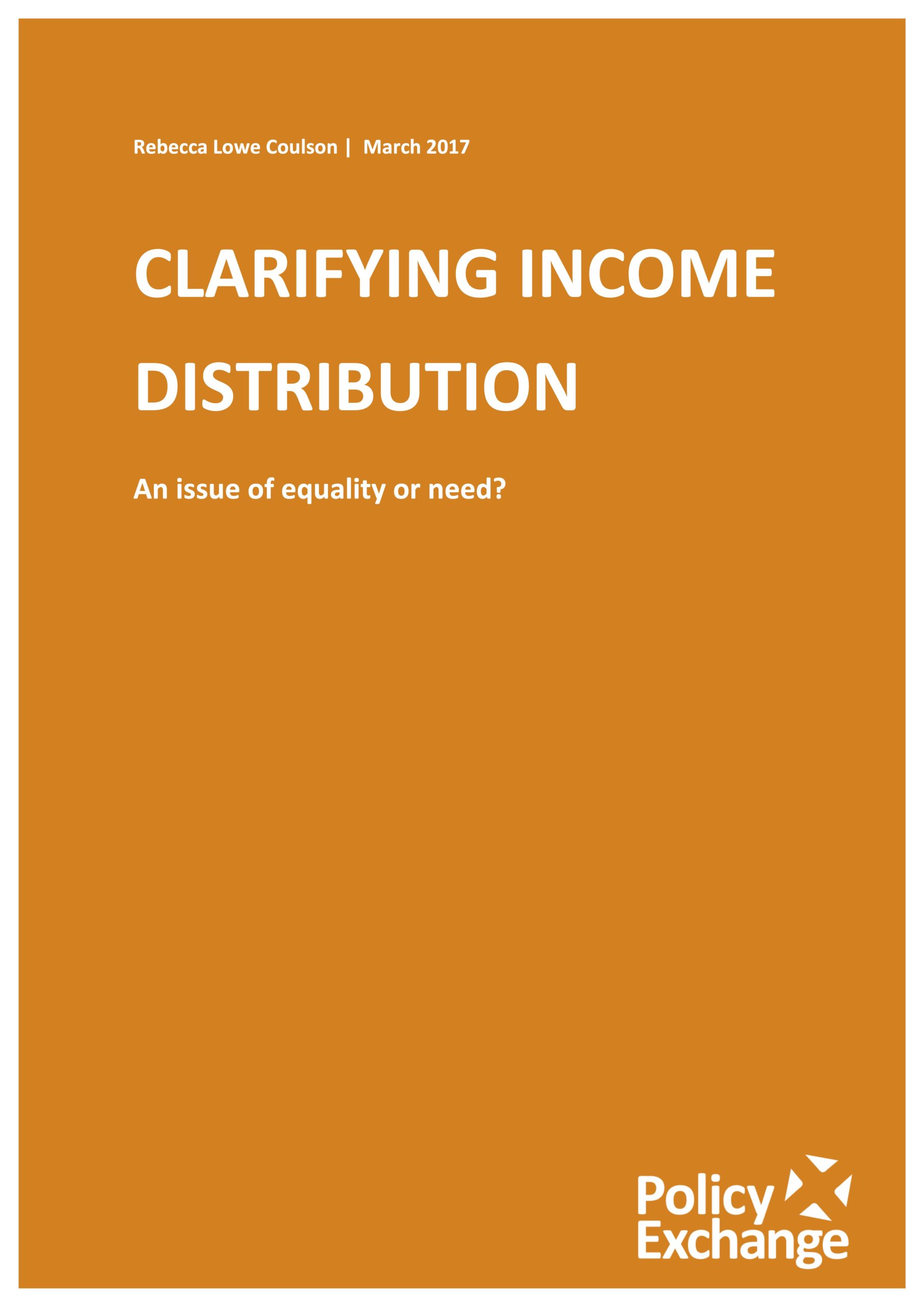
Clarifying Income Distribution: An Issue of Equality or Need?
New analysis from Policy Exchange shows that claims that income inequality has never been greater are not only societally divisive, they are also largely untrue. Income equality does not necessarily equate to high overall living standards: many people confuse and conflate the issues of inequality and poverty.
This report by Rebecca Lowe Coulson, Policy Exchange’s State and Society Research Fellow, clarifies the current situation by providing an accurate summary of the latest information on the distribution of income in the UK, with a secondary focus on the distribution of wealth and consumption. Findings are also assessed in relation to the role of equality in a society, and the duties of the state towards the least well off.
It shows that:
- Far from inequality increasing, the large-scale trend of income inequality in the UK over the past thirty years is flat.
- It is often assumed that the least well off people in society are hit the hardest during times of general economic difficulty, but, in terms of disposable household income, this has not been the case here following the recent Great Recession.
- The poorest quintile is the only one not have seen disposable household incomes fall since then, whilst the incomes of the richest have not yet returned to pre-downturn rates.
- In 2016, median gross weekly earnings increased at the joint highest rate since the downturn, with those at the bottom of the distribution growing the fastest.

